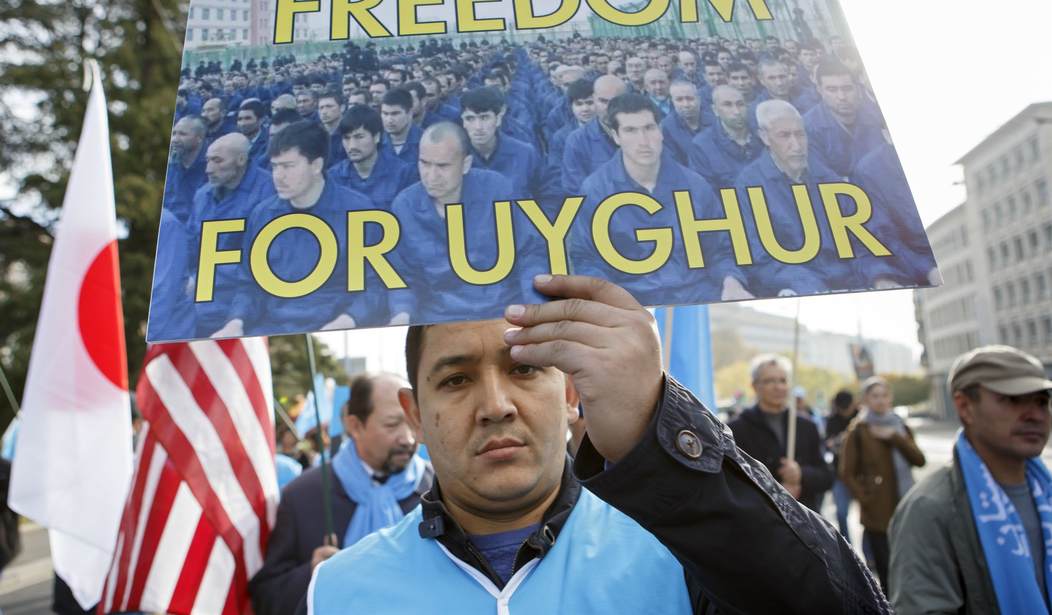When news broke that Rep. Eric Swalwell (D-CA) was targeted during the Obama administration by a Chinese spy named Christine Fang (a.k.a. Fang Fang), most reports concentrated on the fact that Swalwell ultimately entered into a personal relationship with the young woman and allowed her to help him fundraise for his 2014 campaign. What was glossed over was how Fang inserted herself into Swalwell’s — and other powerful political players’ — circles: she was enrolled as a student at a San Francisco Bay Area university. According to Axios, she “took part in fundraising activity for Swalwell’s 2014 re-election campaign, according to a Bay Area political operative and a current U.S. intelligence official” and gathered “private but unclassified information about government officials — such as their habits, preferences, schedules, social networks, and even rumors about them — [which] is a form of political intelligence. Collecting such information is a key part of what foreign intelligence agencies do.”
Fang’s friends and acquaintances said she was in her late 20s or early 30s when she was based in the U.S. and was enrolled as a student at a Bay Area university.
She used political gatherings, civic society conferences, campaign rallies, and campus events to connect with elected officials and other prominent figures, according to U.S. intelligence officials, Bay Area political operatives, former students, and current and former elected officials who knew her.
- U.S. intelligence officials believed she was overseeing likely unwitting subagents whom she helped place in local political and congressional offices.
- Fang attended regional conferences for U.S. mayors, which allowed her to grow her network of politicians across the country.
- She also engaged in sexual or romantic relationships with at least two mayors of Midwestern cities over a period of about three years, according to one U.S. intelligence official and one former elected official.
- At least two separate sexual interactions with elected officials, including one of these Midwestern mayors, were caught on FBI electronic surveillance of Fang, according to two intelligence officials. Axios was unable to identify or speak to the elected officials.
Between 2011 and 2015, Fang’s activities brought her into contact with many of the Bay Area’s most prominent politicos.
American universities have been dinged in the last several years for their adoption of Confucius Institutes (which the National Association of Scholars has determined are Chinese state-sanctioned propaganda outlets in at least some of their activities) and higher education’s acceptance of millions in foreign funding. Fang brought a new awareness to how agents of foreign governments are still practicing the long tradition of using the American education system to gain footholds in the states. Now add educating Chinese genocidal tyrants to the hallowed accomplishments of American liberal arts institutions because it turns out, according to an Australian think tank, two of China’s Uyghur detention camp overseers studied at Harvard University under prestigious fellowships.
Yao Ning, a local party secretary of the Communist party who was honoured this year by Beijing for his work in Xinjiang, studied as an Asia fellow at Harvard University’s Ash Center for Democratic Governance and Innovation between 2010 and 2011, according to a report by the Canberra-based Australian Strategic Policy Institute.
Erken Tuniyaz, chairman of the Xinjiang region, spent a few months at Harvard’s Ash Center as a new world fellow in 2012. Xinjiang’s chair ranks as the region’s second highest official after the party secretary, Chen Quanguo. In a speech in February, Tuniyaz defended Xinjiang’s internment camps as “counter-terrorism and deradicalisation measures”. In an article published in 2012, the Ash Center said the research of Tuniyaz and a colleague at Harvard “promises to inform their professional careers and enrich the Center’s portfolio of scholarship on innovation and democratic governance”.
Daniel Harsha, a spokesman for the Ash Center, said the school has administered a number of training and fellowship programmes with participants from China. “Candidates for this programme were only accepted upon the successful completion of the vetting process by the US embassy in Beijing,” Harsha said.
With the recent furor over radical curriculum — based as it is in Marxism’s Critical Theory — embraced by school boards across the country, any future conservative administration would do well to the oversight and reform of education in this country a linchpin of their agenda.













Join the conversation as a VIP Member